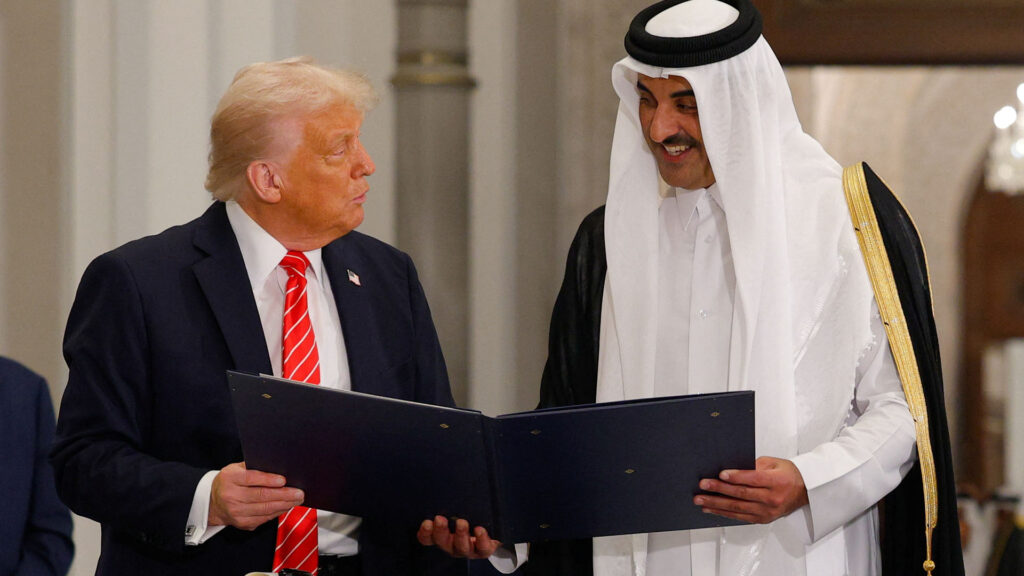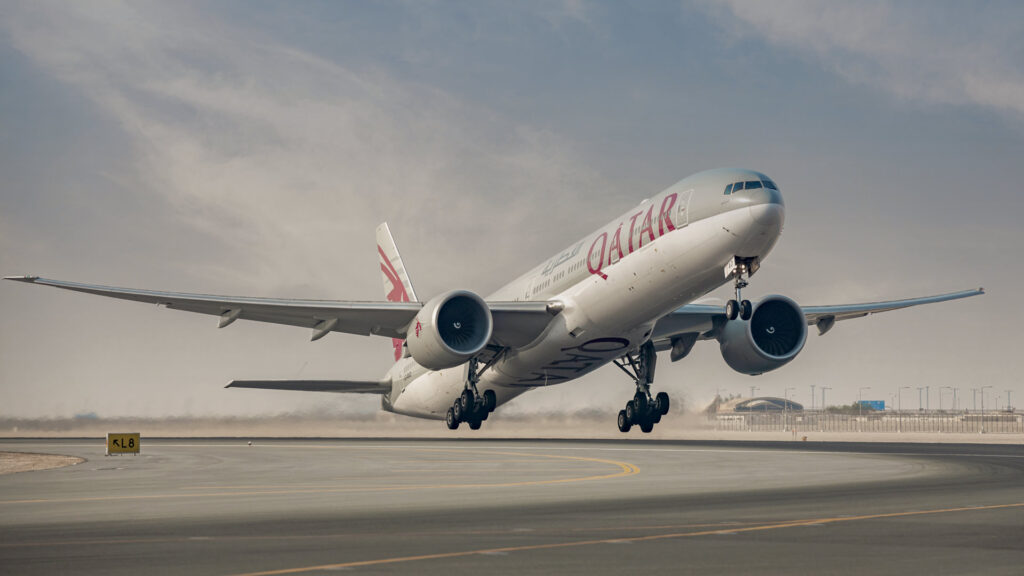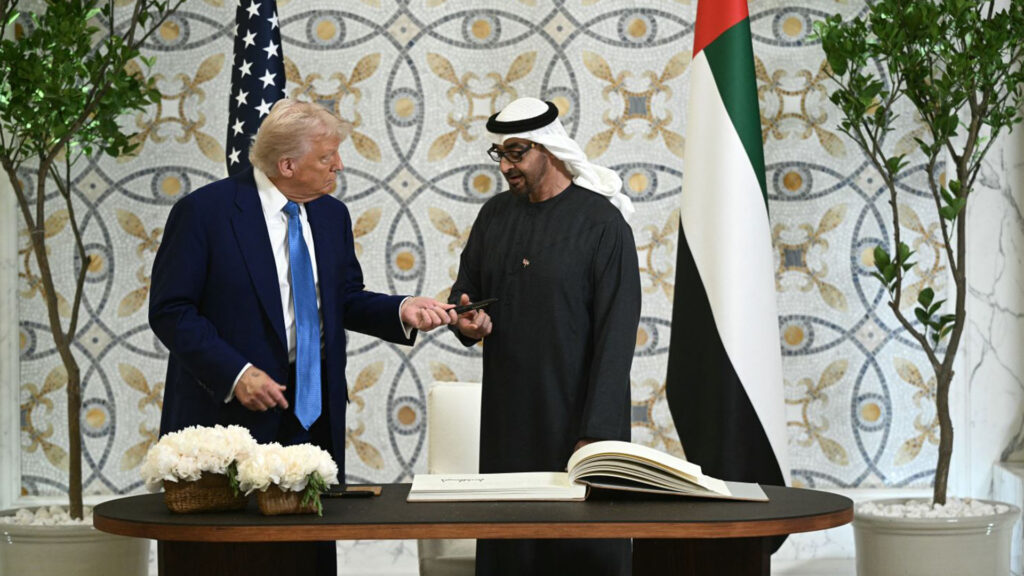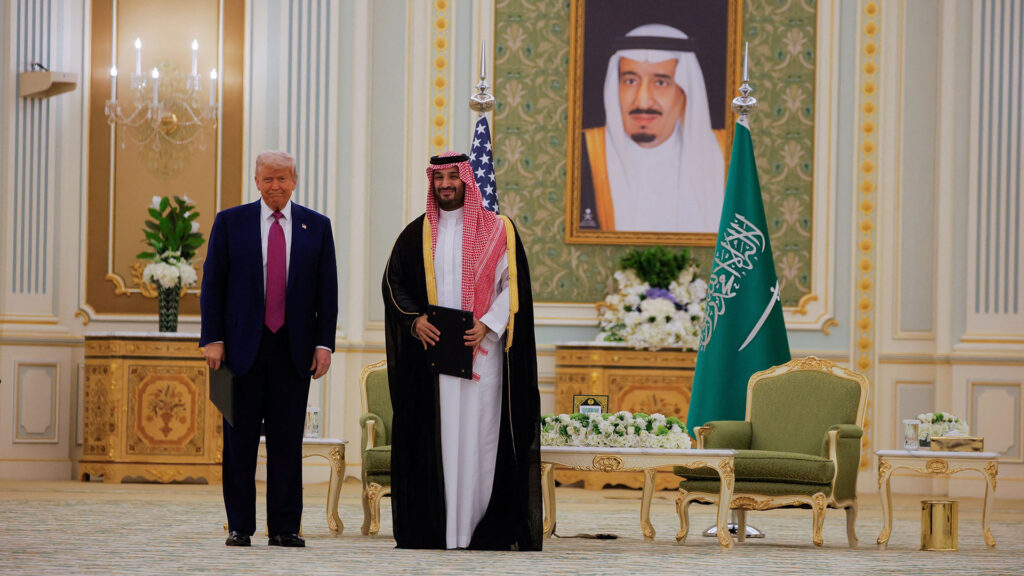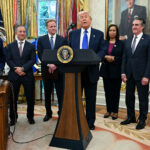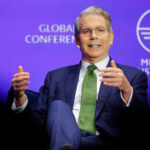In a landmark diplomatic and economic achievement, President Donald Trump has secured a massive $1.2 trillion investment commitment from Qatar during his recent state visit to the Gulf nation.
The historic agreement includes a substantial order for Boeing aircraft, which significantly boost American manufacturing and international trade relations. This deal represents one of the largest foreign investment commitments ever secured by a U.S. president and underscores the administration’s focus on economic diplomacy as a cornerstone of foreign policy.
Highlights
- Qatar has committed to investing $1.2 trillion in the U.S. economy over the coming years
- Agreement includes a major order for Boeing commercial aircraft valued at billions of dollars
- Investment targets critical sectors including manufacturing, technology, and infrastructure
- The deal is expected to create thousands of American jobs across multiple states
- This represents the largest single foreign investment commitment secured during Trump’s presidency
Deal Specifics: Breaking Down the $1.2 Trillion
The comprehensive economic package negotiated between the U.S. and Qatar encompasses investments across multiple sectors of the American economy. According to the White House fact sheet, the deal includes direct investment in American companies, infrastructure projects, and manufacturing facilities.
The Boeing component of the agreement, one of the most immediate and tangible aspects, involves Qatar Airways purchasing a fleet of commercial aircraft. Industry analysts suggest this order could include a mix of Boeing’s 777X, 787 Dreamliner, and potentially the troubled but recovering 737 MAX, providing a critical boost to Boeing’s order books after several challenging years for the aerospace giant.
“This historic agreement demonstrates that American manufacturing remains the gold standard worldwide,” President Trump stated during the signing ceremony in Doha. “When we engage in smart negotiations, American workers and American companies win.”
Strategic Timing and Economic Impact
The timing of this agreement comes at a crucial juncture for the U.S. economy. With rising concerns about inflation and global economic competition, particularly from China, the injection of Qatari capital represents a vote of confidence in American economic resilience and growth potential.
Economic advisors within the administration project that the investments will generate between 15,000 and 30,000 direct jobs in the United States, with potentially hundreds of thousands more indirect jobs created through supply chain effects and economic multipliers. The Unido has previously indicated that every job created in manufacturing typically generates 2.5 additional jobs in supporting industries.
The Boeing Deal: Industrial Renaissance
The Qatar Airways order represents a particular bright spot for Boeing, which has faced significant challenges in recent years following the 737 MAX crisis and production issues with several aircraft models. The company’s facilities in Washington state, South Carolina, and elsewhere stand to benefit substantially.
The aircraft order is estimated to secure thousands of high-paying jobs across Boeing’s manufacturing network and its extensive supply chain, which includes more than 12,000 suppliers across all 50 states. According to aerospace industry data, each commercial aircraft contains approximately 2-3 million parts, with production supporting a vast ecosystem of specialized manufacturers.
“This order isn’t just about Boeing, it’s about the thousands of American small and medium businesses that make up the aerospace supply chain,” noted William Spencer, president of the Aerospace Industries Association. “These are exactly the type of high-skill manufacturing jobs that build and sustain the American middle class.”
Qatar’s Strategic Calculations
For Qatar, the investment represents a continuation of its strategy to diversify its global portfolio beyond natural gas revenues. The small but wealthy Gulf nation has been steadily expanding its international investments through the Qatar Investment Authority, its sovereign wealth fund, which manages approximately $500 billion in assets.
Qatar’s economy, while currently dominated by liquefied natural gas exports, has been deliberately moving toward becoming a knowledge-based economy with significant international investments. The country has previously made substantial investments in European companies, real estate in London and New York, and various technology ventures.
Diplomatic analysts suggest that Qatar sees this investment beyond economic returns as strengthening its relationship with the United States, a critical security partner in the volatile Middle East region. Qatar hosts Al Udeid Air Base, the largest US Military Installation in the Middle East, home to thousands of U.S. troops and a central command hub for American military operations in the region.
Political Implications
The agreement represents a significant political win for President Trump, who has consistently emphasized his deal-making abilities and focus on job creation. The investment package delivers on campaign promises to revitalize American manufacturing and secure favorable trade terms with international partners.
The deal also comes at a time of complex Middle East diplomacy, with ongoing tensions between various Gulf states and continuing challenges regarding Iran. Qatar was previously subject to a blockade by other Gulf Cooperation Council members, though those tensions have eased somewhat in recent years.
Foreign policy experts observe that the scale of this economic commitment suggests a deeper strategic alignment between Washington and Doha. Ambassador Richard Haass, president emeritus of the Council on Foreign Relations, commented: “Economic deals of this magnitude are never purely about economics, they reflect and reinforce strategic relationships and mutual interests.”
Industry Response and Future Outlook
The announcement has been met with enthusiastic responses from American industry groups.
Stock markets responded positively to the news, with Boeing shares jumping significantly following the announcement. The broader market also showed gains, particularly in sectors expected to benefit from Qatari investment, including technology, energy infrastructure, and advanced manufacturing.
Looking ahead, implementation of the agreement will be closely watched. Large international investment commitments sometimes face challenges in full execution, with actual capital deployment often occurring over many years. The administration has indicated that a joint U.S.-Qatar economic commission will be established to monitor progress and facilitate investment flows.
Conclusion
The $1.2 trillion Qatari investment commitment represents a major diplomatic and economic achievement for the Trump administration. It promises significant benefits for American workers, companies, and the broader economy if fully realized. The Boeing component of the deal provides an immediate and concrete win for American manufacturing. At the same time, the broader investment commitment could shape economic relations between the two countries for decades.
As global economic competition intensifies, particularly with China, securing such substantial foreign investment in American industry demonstrates continuing international confidence in the U.S. economy. Whether this deal represents a one-off achievement or the beginning of a new approach to economic diplomacy remains to be seen. Still, its immediate impact on U.S.-Qatar relations and American manufacturing is undeniable.
